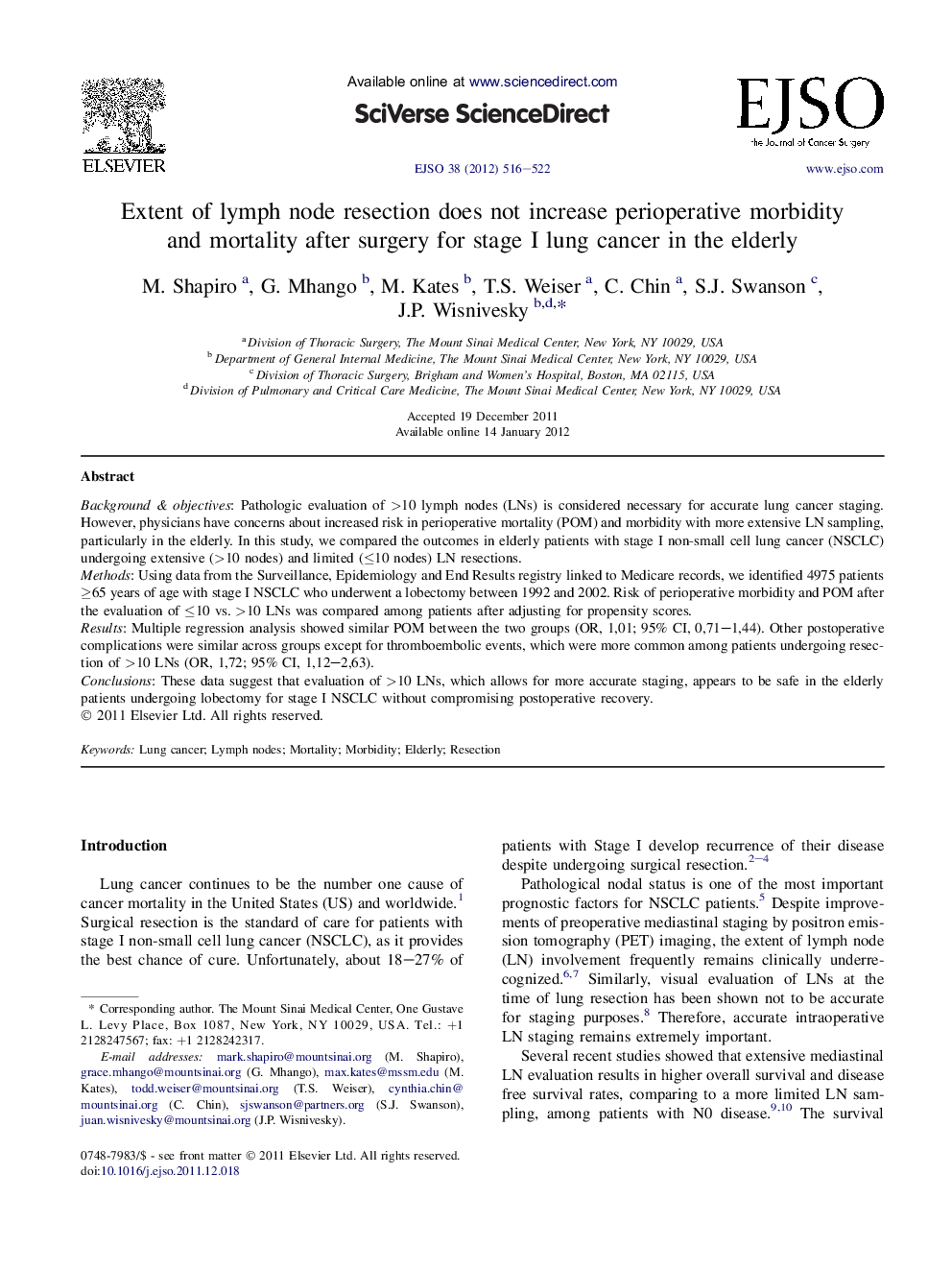| Article ID | Journal | Published Year | Pages | File Type |
|---|---|---|---|---|
| 6192204 | European Journal of Surgical Oncology (EJSO) | 2012 | 7 Pages |
Background & objectivesPathologic evaluation of >10 lymph nodes (LNs) is considered necessary for accurate lung cancer staging. However, physicians have concerns about increased risk in perioperative mortality (POM) and morbidity with more extensive LN sampling, particularly in the elderly. In this study, we compared the outcomes in elderly patients with stage I non-small cell lung cancer (NSCLC) undergoing extensive (>10 nodes) and limited (â¤10 nodes) LN resections.MethodsUsing data from the Surveillance, Epidemiology and End Results registry linked to Medicare records, we identified 4975 patients â¥65 years of age with stage I NSCLC who underwent a lobectomy between 1992 and 2002. Risk of perioperative morbidity and POM after the evaluation of â¤10 vs. >10 LNs was compared among patients after adjusting for propensity scores.ResultsMultiple regression analysis showed similar POM between the two groups (OR, 1,01; 95% CI, 0,71-1,44). Other postoperative complications were similar across groups except for thromboembolic events, which were more common among patients undergoing resection of >10 LNs (OR, 1,72; 95% CI, 1,12-2,63).ConclusionsThese data suggest that evaluation of >10 LNs, which allows for more accurate staging, appears to be safe in the elderly patients undergoing lobectomy for stage I NSCLC without compromising postoperative recovery.
